discovery



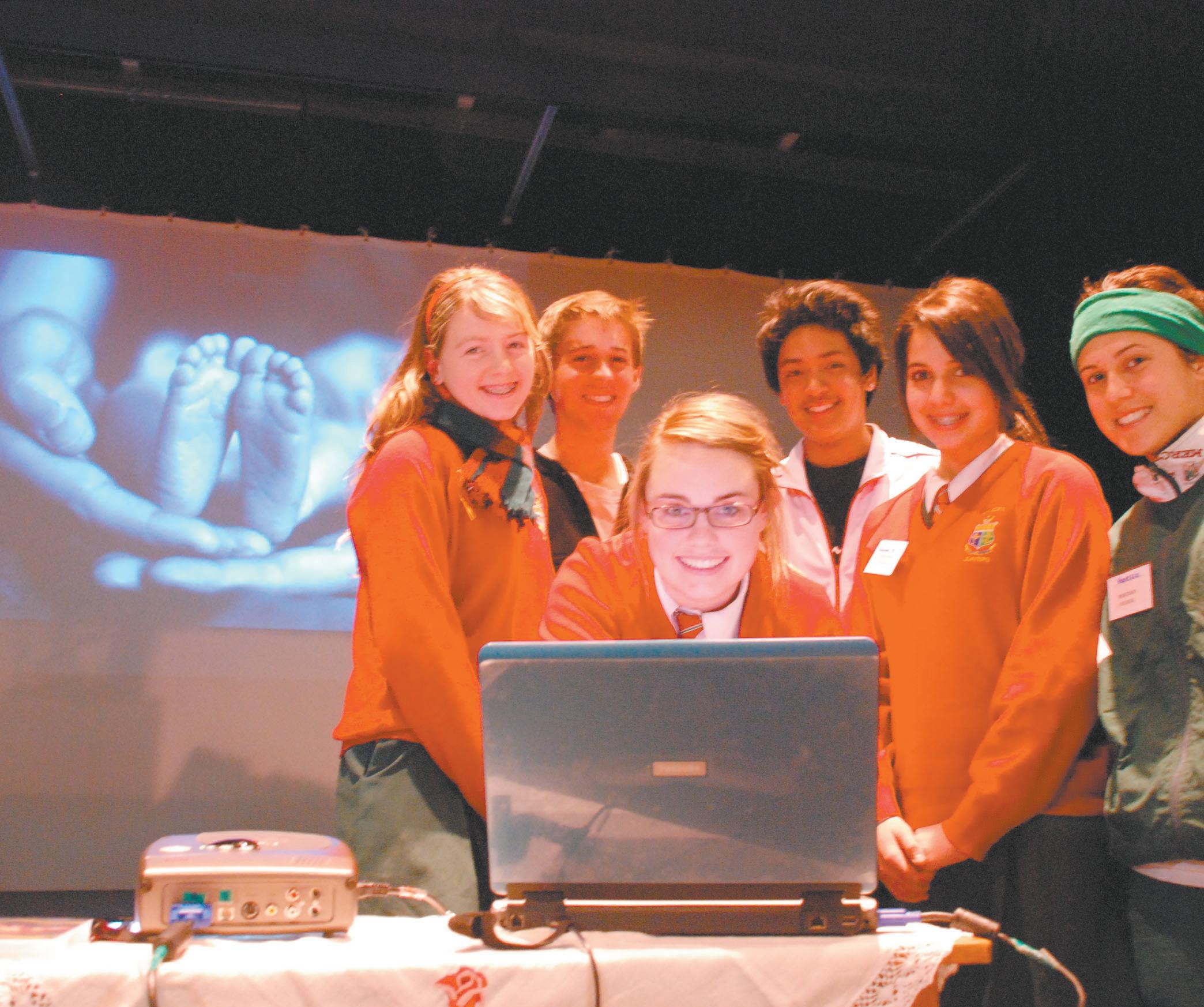
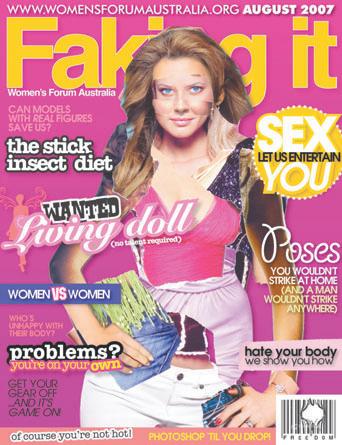

Catholic magazine for families
Editor Peter Rosengren Letters to: cathrec@iinet.net.au
Journalists Anthony Barich abarich@therecord.com.au
Sylvia Defendi sdefendi@iinet.net.au
Mark Reidy reidyrec@iinet.net.au
Paul Gray
Accounts Cathy Baguley recaccounts@therecord.com.au
Administration Justine Stevens administration@therecord.com.au
Advertising Terence Boylen advertising@therecord.com.au
Bookshop Manager Natalie Thomas bookshop@therecord.com.au
587 Newcastle St, Leederville Post: PO Box 75, Leederville, WA 6902
Tel: (08) 9227 7080
Fax: (08) 9227 7087
Discovery is a bimonthly publication distributed through parishes and schools of the dioceses of Western Australia.











Caritas asks for prayers and support for the 40 million people displaced in Bangladesh, Nepal, India, Pakistan and the thousands homeless in Peru.
Urgent funds are needed for victims of the South Asia floods which are as bad as the Boxing Day tsunami and for those affected by the powerful earth quake in Peru.
Unfortunately, despite these humanitarian crises, media and public response remain extremely


limited. To assist please call 9422 7925, 1800 024 413 (Sydney) post donations to 40A Mary Street, Highgate WA 6003 or visit www. caritas.org.au .
Donations can also be posted to 19 MacKenzie Street, North Sydney, NSW, 2060. Or call Australia Toll Free 1800 024 413; telephone 02 9956 5799 or facsimile 02 9956 5782.






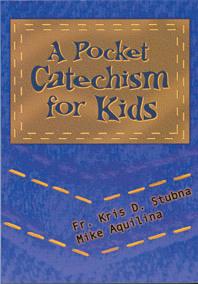

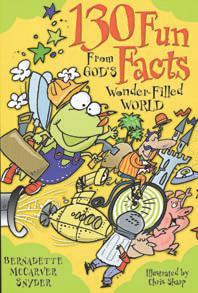

New Release
131 FUN-damental Facts for Catholic Kids
by Bernadette McCarver SnyderA Pocket Catechism for Kids
Email caritas@caritas.org.au, or log onto www.caritas.org.au ABN 90 970 605 069.
Medically and scientifically accurate

As effective as the oral contraceptive pill
For more information call 9223 1396
e-mail: admin.nfs@aanet.com.au or visit www.acnfp.com.au


This fun book helps explain the Liturgy, Litanies, Rituals, Rosary, Sacraments, Symbols and a host of other aspects of the faith to children. A gem of a resource, that is as funny as it is wise.
$19.95+postage
The Catechism of the Catholic Church has been simplified for kids, to help them understand and live the faith.
130 Fun Facts From God’s Wonder-Filled World by
Bernadette McCarver SnyderThis popular book is a fascinating foray into facts and tidbits about the saints, animals, computers and everything else in God’s wonder-filled world. ................................................
$19.95+postage







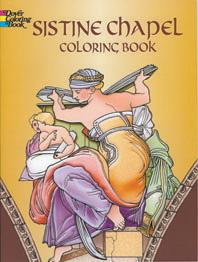

Achieving, avoiding, spacing pregnancy, breastfeeding, menopause, coming off the pill
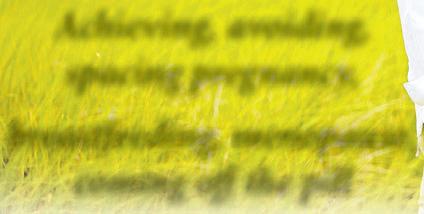



Catholic Press Association Award Winner
The Weight of A Mass: A Tale of Faith
By Josephine Nobisco
The Princess & The Kiss
By Jennie Bishop
When a poor widow begs for a scrap of bread from a faithless baker, she promises to participate in the king’s wedding as payment for the baker’s generosity. The town then finds out the the true power of the Mass.
$19.95+postage


A king and queen present their daughter with a gift from God – her first kiss. A story to help children learn that love comes from a pure heart, a good conscience and a sincere faith.
$22.95+postage
The Sistine Chapel Colouring Book
Michaelangelo’s Sistine frescoes have been beautifully rendered, allowing children to have fun whilst experiencing the detail and majesty of the life of Christ, the Creation, the Prophets, the Last Judgement and the Flood.
$9.95+postage
Contact Natalie on Monday, Tuesday or Thursday Ph: (08) 9227 7080 Fax: (08) 9227 7087 email: bookshop@therecord.com.au 587 Newcastle St, West Perth

 ■ By Sylvia Defendi
■ By Sylvia Defendi
Tired of using outdated American resources from the 80s, ‘Loving for Life’ (LFL), the school-based education arm of Billings WA, spent the last three years producing their own local educational DVD, launching a new wave of relationship education based on Christian sexuality, that is unique to WA.
“Perhaps most notable is that those screened on the 15 minute DVD are real Australians who have encountered an unplanned pregnancy and dealt with it in a variety of ways,” executive producer Tina Jack told discovery.
Titled ‘When Life is not Planned,’ the DVD features interviews with doctors, counsellors, a journalist, lawyer and Catholic priest, as well as those who have experienced an abortion, have adopted, given a child up for adoption or decided to keep their child.
The DVD follows the stories of five Australians, their experience in facing the issue of an unplanned pregnancy, the choices they made and the impact their decision had on their lives.
“These are real people from Perth, WA and around Australia who have opened their hearts and told their story to students, without lecturing or being judgemental,” Mrs Jack said. The DVD, which was launched on August 16, was received gratefully by many and blessed by Archbishop Barry Hickey, who said
For decades parents, healthcare workers and authorities have searched for resources that will help young single women facing the crisis of an unplanned pregnancy. Now, the best new resource has been put together not by a State agency but by the educational arm of the Billings natural fertility movement.
he had noticed a positive shift in the mentality of young people.
“14 years ago I went into a Catholic boys school and was given a rough time – I saw all the messages of the media. But in recent years, young people are more responsive, more open to a message of life and love,” he said. It is this message, which was first developed in Melbourne during the 70s.
As it grew, the program was soon known as ‘Loving in the Nineties,’ until it reached WA in 1992 and was modified, expanded and revamped by presenters Trish Beale, Tina Jack and Carol Anne Norris, who renamed the program ‘Loving for Life.’
Today the LFL team is made up of almost 20 trained facilitators who are presenting to an increasing number of school students each year.
The program has been expanded to include three modules, the first being Learning to Love, which will soon be presented for upper primary school, Choosing to Love for students in middle secondary and Loving Forever for senior secondary school students. The Choosing to Love module, which is currently most often presented in schools, incorporates information



sessions on foetal development, fertility, STI’s, unplanned pregnancy and the media, as well as discussions on relationships and dating.
Digital media is a pertinent part of the program and is used to educate students on unplanned pregnancy and foetal development. However, as Mrs Jack recounted, resources had been outdated for many years.
“Our previous resources had valuable information, but were too lengthy, often related to American situations and were being perceived by students as pushing an oldfashioned religious message,” Mrs
English 17-year-old Jasmine Willis drank seven doubleespressos in the course of a shift working in her father’s sandwich bar and ended up in hospital. “My nerves were all over the place,” she said. “I was crying in front of the customers and had tears streaming down my face. “I was drenched and burning up and hyperventilating. I was having palpitations, my heart was beating so fast and I think I was going into shock.” Side effects lasted several days and now Jasmine cannot bear the sight of coffee. Her father said he had “always stressed to my children the importance of moderation” and that Jasmine did not realise she was drinking double measures.
- Guardian -
More than a third of workers (34 per cent) surveyed in Britain said they felt stressed by the volume of emails they received, and a further 28 per cent they felt “driven” to check and respond to messages. Monitoring software showed some workers checked their emails up to 40 times an hour. Women felt more pressure to respond than men.
- London Telegraph -
Jack said. A service of the Ovulation Method Research and the Reference Centre of Australia, LFL received the kick-start it needed, when Karl Brown, of Christian youth ministry City Impact, was approached by Mrs Jack in 2005 to film the new resource.
“Soon Perth’s Respect Life Office, Pregnancy Assistance, Abortion Grief Counselling and FertilityCare were agreeing to be part of the new DVD,” Mrs Jack said, adding, “in fact, the only person who declined to be filmed was a representative of Family Planning Australia.”
Even Mrs Jack’s daughter, Michelle, along with a few other friends lent their talents as voiceovers. Of the production process, Mrs Jack said she was astounded to discover how demanding the production process was.
She said it would not have been possible without the assistance of Mr Brown, Kylie Ryan also from City Impact, who designed the DVD cover and all those who aided with their support and financial assistance. Feedback from students, who have watched the new DVD, has been positive.
“They now realise that there is life after pregnancy,” Mrs Jack told discovery. As for the next project in the pipeline, Mrs Jack says work has already begun to replace another out-dated video resource on foetal development.
“I have a long term vision for a Catholic media group that produces materials and resources to assist RE teachers in schools,” she said.
Having three or four kids is a new status symbol among America’s wealthiest families, according a report on national radio. In the past 10 years, the number of high-end earners who are having more than two children has shot up nearly 30 per cent. Some say the trend is driven by a generation of over-achieving career women who have quit work and transferred all of their energy into motherhood.
- Family Edge
Being brainy is unlikely to make a person rich, another study has found. “Luck, timing, parents, choice of spouse” and other factors play important roles, says Jay Zagorsky of Ohio State University, after studying data from the National Longitudinal Survey of Youth, which started in 1979. “Being more intelligent does not confer any advantage along two of the three key measures of financial success (income, net worth and financial distress),” Zagorsky finds. And when it comes to financial distress, high IQ is no help at all. People with scores of 140 went bankrupt at a rate, 14.1 per cent, close to the rate of people with an IQ of 80, 15.2 per cent.
- Family Edge -
French-speaking Belgian Titane Laurent felt lost until she started doing what really made her happy
Twelve years ago I was living in Belgium, wearing expensive high-heeled shoes and corporate clothes. I had a great CV, a high position in marketing but despite being envied by many of my friends I was miserable.
One day I asked a close friend: “Is this all there is? He answered my question with another one. “What would you do, if you had only one year to live?” Well that worked for me. I wanted to be an artist, to live in a warm country, wear comfortable clothes and feel free. So I quit my job and off I went. I studied art in different schools, drew day and night, and then finally after two years, with money and pretend friends all gone, I had nothing to lose, so I left. I decided if I had to be poor in order to live my passion, I might as well do it in a warm country. New Zealand seemed pretty warm and natural. It’s also as far as I could go, ... any further and I’d be on my way back to Belgium. I thought: “Surely, nobody would judge me or bother me there...”
Soon after, I arrived in Auckland with not much more than my bicycle and my dream of being a free artist. I started my new life as a gardener, then worked in a framing shop and then sold my paintings with the frames from the framing shop. But that was not enough, I wanted to be a real artist. I needed to study more. Auckland art schools were too expensive, too hard and too far for me so I asked my good friend for more advice.












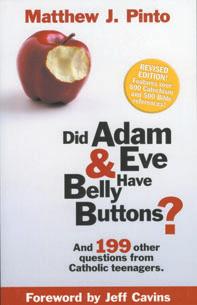

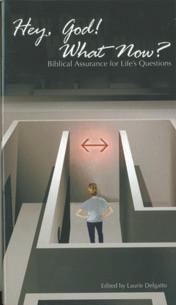

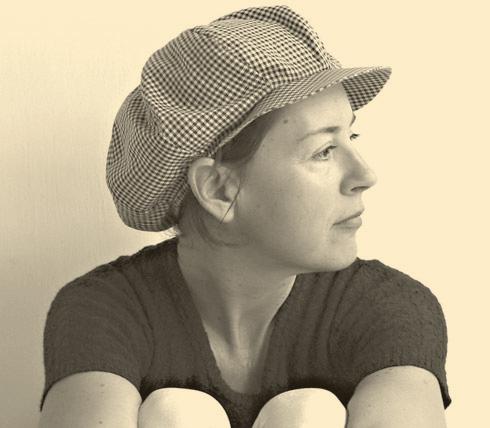




He just said to me: “wait, be patient...” Two weeks later, I received in my mail box an advertisement for “The business School of New Zealand” offering an illustration and cartooning course by correspondence that was subsidised by the government. Later on, one of the assignments was to find a topic where I could easily find inspiration for my cartoons, like fishing or tennis.
I spent weeks thinking and thinking in vain. I had no hobby, my English was dreadful as was my social life and I had no activities. So I asked my good old friend to help me again. He answered: “Why not choose me as your topic?”
“You! What do you mean?”
“I mean choose me, God, as your topic”.
What a great topic! Of course, my best friend was God, and the only book I had, that I seemed
Girls Gone Mild: Young Women Reclaim SelfRespect and Find It’s Not Bad to Be Good
By Wendy ShalitWendy Shalit investigates how the push for women to be provocative and seductive in deed and dress comes from oppressing women, and how the modesty counter-revolution is raising up virtous young women with confidence and integrity................ $51.90+postage
Did Adam & Eve Have Belly Buttons? And 199 Other Questions from Catholic Teenagers
By Matthew PintoMatthew Pinto answers a myriad of questions regarding evolution, the Bible, music, money, sexuality, the sacraments, female priests and the end times.
Hey God What Now?
By Laurie DelgattoHey God unlocks what Scripture has to say about relationships, pressure, forgiveness, making choices, addiction and many other issues and what to do about them.
$14.95+postage

never to finish, was the Bible. So I began to create God’s Stuff cartoons. I sold them every week to the priest at my local church. His encouragement was the start of an amazing journey with my best friend: God! Eight years later, I’d had enough. I felt that my cartoons would never reach “The greater public”. According to my non-Christian friends, my topic was “Too boring!” I really felt that my cartoons were not boring at all, if only people would read them. As a last resort, I asked God what to do...and this is what I heard from this
amazing, silent conversation. “Have no fear... I can open all the doors for you..., with Me everything is possible”. So I made a few calls and, voila, circulation nearly 1,000,000 per week in 2007. He did it! Thanks to the close friend whose advice I had asked so long ago, God’s Stuff has been published or exhibited in Australia, Germany, Japan, New Zealand, Mauritius and USA.
See the cartoons at godstuffcartoons.com, plus titanelaurent.com displays her paintings inpired by religious themes.


Letters To A Young Catholic
By George WeigelIn a series of inspiring letters George Weigel helps young Catholics understand what it means to be a Catholic not just in name, but in body and soul.
$24.95+postage

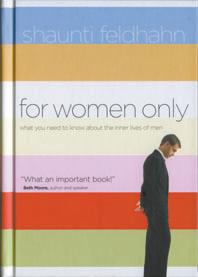

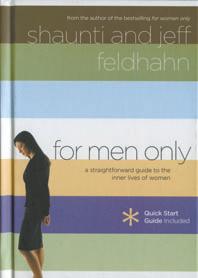

For Women Only: What You Need to Know About the Inner Lives of Men
By Shaunti FeldhahnAn eye-opening book to help you understand why men do what they do, such as never stopping to ask for directions, and what it really means. Not to be missed!
For Men Only: A Straightforward Guide to the Inner Lives of Women
By Shaunti & Jeff FeldhahnWhy do women have random pop-ups in the middle of a conversation? Why is she upset when you think there’s nothing wrong? A book to help you understand the complex female mind.
$26.95+postage
Stress is aimed at families from every direction these days, but but take heart - their unique role will be the focus of a special Perth gathering in October, as experts offer their insights and advice on how to do the most important job in the world. And everyone’s invited to be there.
■ By Anthony
BarichIt’s not just a conference, more of a line-up of experts and those with heaps of experience, with plenty of fun and relaxation thrown in.
A powerhouse line-up of guest speakers is descending on Perth for the Committee for Family and for Life’s Family Weekend from October 5-7 at Our Lady Queen of Apostles parish, Riverton.
A multicultural extravaganza including Filipino and Sudanese dancers and singers and a youth concert are in store as parishes, schools and all and sundry Catholic communities are invited to bring their banners to ensure the conference is as colourful is it is spiritually engaging.
All ages are catered for, with a children’s program on the Saturday presented by the Bethel Community, who have for years run a hugely successful education program aimed at developing children’s mental and spiritual core, based on the Catechesis of the Good Shepherd.
The “hands on” activities will present an experience of God at work through everyday events, scripture and liturgy, taking advantage of the normal characteristics of various age groups. “Celebrate Youth” on the Saturday night, headlined by Canberra-based guest speakers
Karen and Jonathan Doyle from Choicez Media, includes a youth expo, student art, bands including music from the Goliath Battle of the Bands concert, drama, dance and games. Celebrate Youth is all about youth and their families – a chance for young people from all over the State to come together, have fun and hear about how they can make their family great.
Choicez Media is Australia’s leading provider of values-based sex education seminars and

A new approach: “Our vision for human sexuality is grounded in the value and dignity of the human person and the Church’s rich teaching,” says presenter Karen Doyle, whose talks and resources on sexuality education given with husband and fellow presenter Richard, are taking government and non-government schools by storm in the eastern states and New Zealand.
Photo:Choicez
resources. “Our vision for human sexuality is grounded in the value and dignity of the human person and the Church’s rich teaching,” Karen Doyle said.
Recently the Bishops Conference of New Zealand placed three of their programs into every school in the country.
The workshop will focus on empowering students to face pressures to be sexually active, tips for discussing sexuality with youth, the problem with pornography, discussion on how the family is the ideal place for sexuality information and a puberty education package for
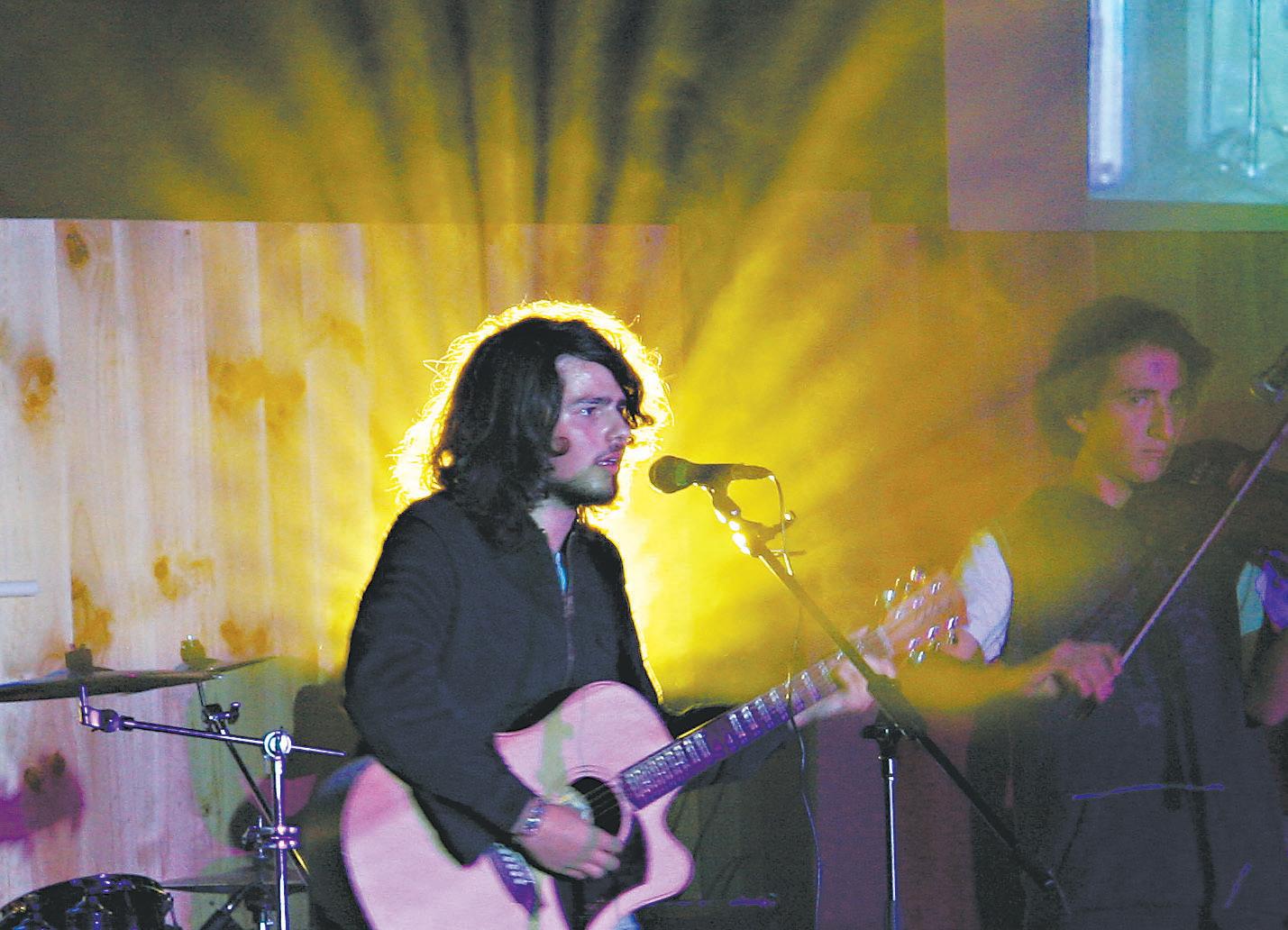
parents and schools. The conference is as engaging for parents as it is for youth. Professor of Medicine Dr Bruce Robinson, a father of three, will speak on balancing family and professional life.
He also wrote Fathering from the fast lane which was listed in Choice Magazine’s ‘top 10 Books’ in 2001. Also speaking is clinical psychologist Ean James, a father of three daughters who runs seminars that combine the spiritual with the psychological.
He will speak on effective ways of communication in families, enriching families by building trust in relationships and developing connections for ‘sacred family’.
Silvina Martinez, from the Parents and Friends Federation, will speak on the unique and irreplaceable power and influence of parents. Mrs Martinez introduced the “Parent to parent – Safe Passage” program into WA schools.
She will also provide a unique and non-threatening approach to better equip parents to guide their children around today’s ‘toxic culture’.
Perth Archdiocesan Catechist Carmel Stuart, who wrote the program “The truth will set you free” for catechists, will explore the importance of communicating with other people and God and invite families to work together to construct a family prayer. Her presentation is suited to families with primary-aged children.
Volunteers are needed for the event. For further information, contact Barbara Harris on (08) 9328 8113.
Russian marketers join the grab for little girls
“If you don’t wear Prada, you’re a reject,” runs the slogan in Moscow’s leading department store - and it’s not aimed at adults. In a series of cartoons a girl of about six is shown sneering at her toys - a bear and a bunny - and saying: “I don’t need you two any more. Now all I’m interested in is clothes.” The marketing stunt has brought the Russian media out in a rash, condemning it as a crude attack on childhood innocence. - Family Edge
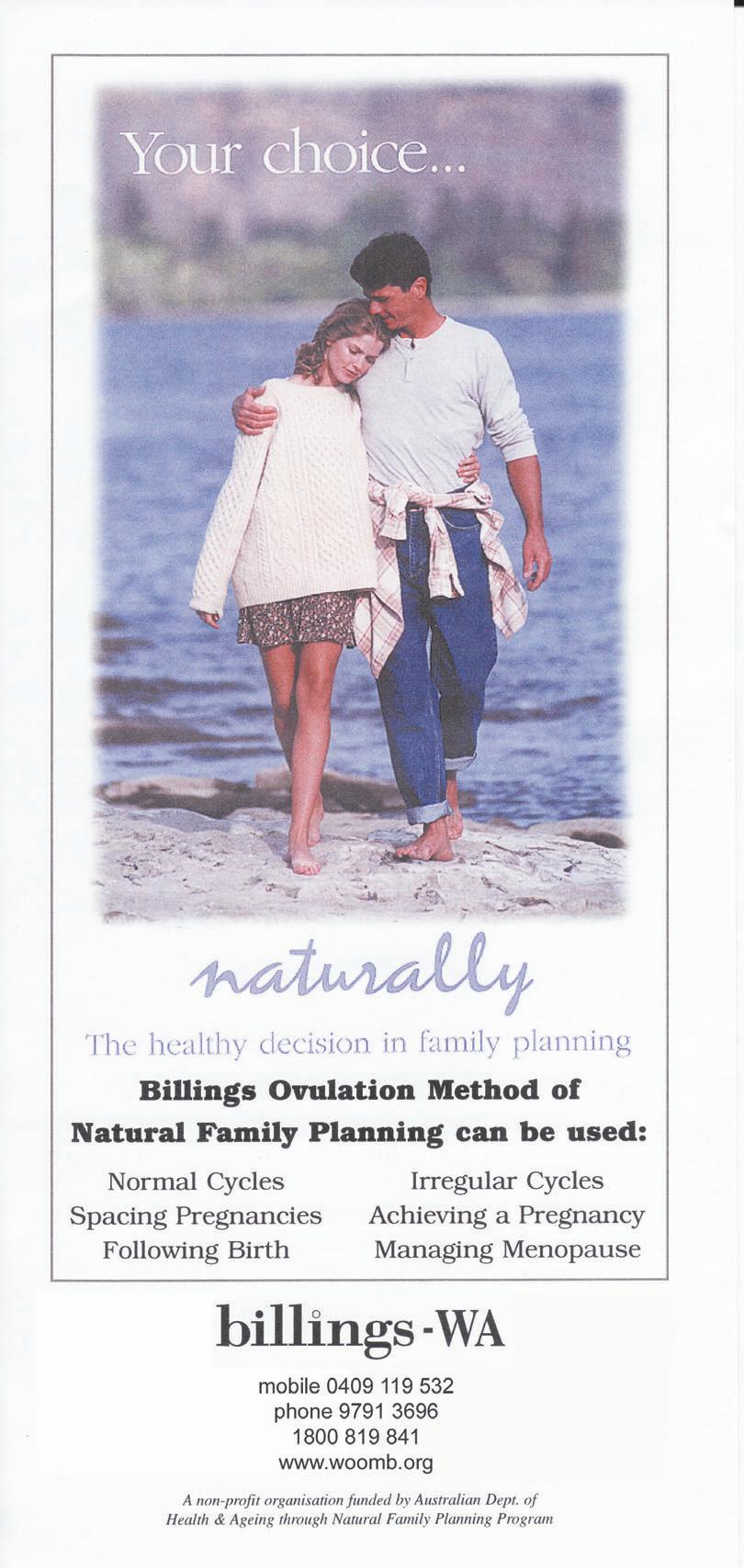


(Weinstein)
Charming but ultimately dull sword and sandals adventure, based on the novel by Valero Manfredi, about the ancient Roman roots of King Arthur. Director Doug Lefler and screenwriters Jez Butterworth and Tom Butterworth spin a fictional epic about young Romulus Augustus, who fortunately finds the sword of Julius Caesar, named Excaliburum, and even more fortunately heads to Britain. Violence merely confined to bloodless swordfights. Parents strongly cautioned. Some material may be inappropriate for children under 13.

Now here's a colouring-in competition with a difference - a design taken from the Sistine Chapel in the Vatican in Rome. Did Michelangelo, the famous artist who painted it, ever guess that his beautiful designs which show, among other things, God creating Adam (as pictured above) would ever be used in a colouring-in competition? I doubt it. Well, it doesn’t matter anyway because here’s your chance to have some fun with one of the great artists of the world as your guide. Simply colour in this picture above, then cut it out and send it in to discovery at PO Box 75, Leederville, WA 6902 and the best five entries will win a FREE copy of the Sistine Chapel Colouring Book from The Record bookshop. Entries must be received by Friday September 28.

(Universal)
The perennially pleasing Mr Bean (Rowan Atkinson) gets up to his old tricks when he wins a trip to the French Riviera, but before reaching the beach he manages to complicate the lives of a Russian film critic (Karel Roden), the critic’s young son (Max Baldry), a self-
obsessed movie director (Willem Dafoe) and a charming French actress (Emma de Caunes).
As directed by Steve Bendelack, the film is an unmitigated delight: gentle, ingenious and equally appealing to children and adults. Some mild scatological humour and a few slightly frightening scenes that might upset very young children. G - general audiences. All ages admitted.
(Disney/Spyglass)
An ordinary dog is given extraordinary powers in this charming film adaptation of the classic 1960s television cartoon series. Director Frederik Du Chau’s updated, liveaction adventure combines the best of 21st-century special effects with a genuinely
engaging story line, some wry humour and unimpeachable family values. Occasional crass language, some mild innuendo, and scatological humour and cartoon violence perhaps preclude the film for very young children. PG - parental guidance suggested. Some material may not be suitable for children.

Students from over 10 schools in Perth joined in the YCS Healthy Happy Bodies Day to discuss the elements that help achieve true happiness and the dangers of negative body image.
■ By Sylvia DefendiOver 200 students from public and private schools across the metropolitan area gathered at the University of Notre Dame in Femantle, late in July, for a day of health and happiness.
The Healthy Happy Body Day, as it was known, was hosted by the Young Christian Students (YCS) organisation, who have noticed a need to educate youth on the dangers of poor body image.
Students participated in lectures, discussions, physical activities and various games throughout the day.
Chairperson for the YCS body image team, Bronwyn Clarke, who is also a year 10 student at Sacred Heart College in Sorrento, said that the team have long realised the importance of forming a campaign for the promotion of positive body image among youth.
The team’s work has recently concentrated on producing a statement on the dangers of digital manipulation in school photography
and letters to the editors of youth oriented magazines that consistently promote poor examples for youth.
With the Healthy Happy Bodies Day, being another major project for the team, Miss Clarke said the day’s main focus was to alert participating students to the various necessities for achieving a truly healthy body.
“We made sure many perspectives were offered on the day and that speakers addressed the different aspects that are all equally important when achieving health,” she said.
Indeed guest speakers addressed issues within the media, with eating disorders, dietary requirements, mental health and spirituality.
Students from Curtin University’s Dietetics Faculty spoke to youth about natural growth and the importance of maintaining a balanced diet throughout life.
Judy Beven from Arafmi Mental Health Carers discussed the dangers of developing
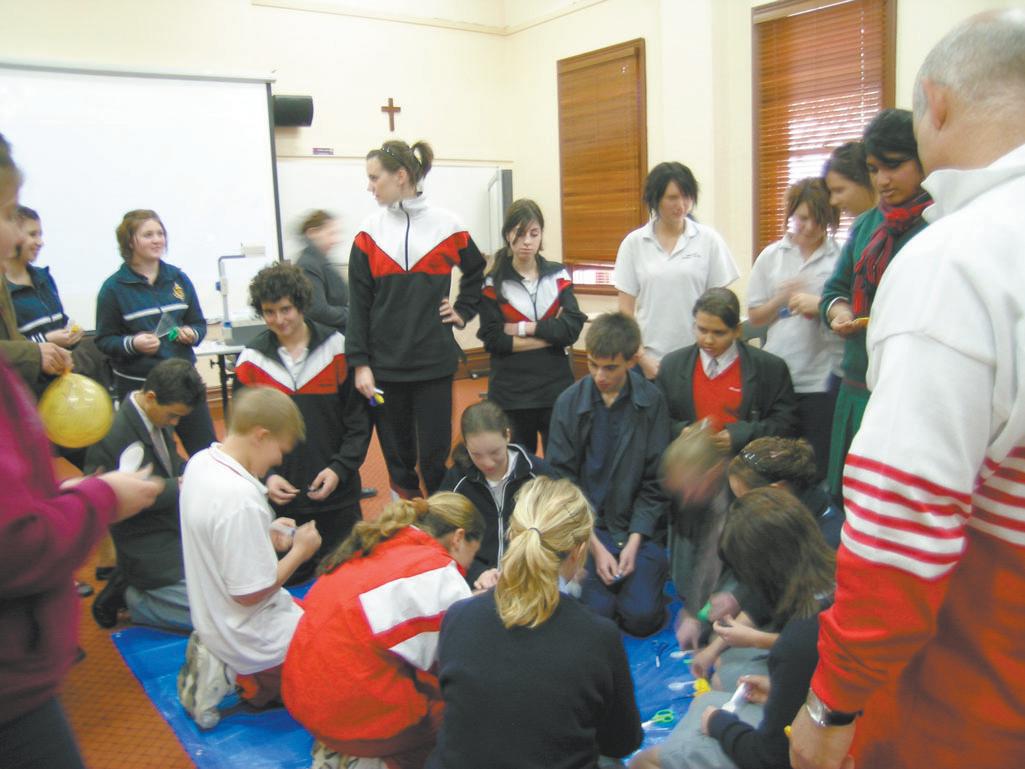
poor mental health as a result of negative body image, as well as how to detect mental health issues in friends and where to seek appropriate assistance.
In a powerful presentation on eating disorders, Katherine Radosevich offered students her experience with an eating disorder that saw her needing urgent medical attention.
Journalist Anthony Barich addressed the male students with his insight into the world of sport-driven media and its often-detrimental effects on males who look up to sporting
figures. Sarah Warren opened student’s eyes to the presence of everyone’s spiritual side and how it is almost unknowingly connected to a person’s quest for physical health and true happiness.
Of the day, Miss Clarke told discovery that “It’s important to create a forum where necessary information can be passed around, because, unfortunately, there are not many places offering this opportunity to youth, who desperately need it.”
For more information on YCS, call: (08) 9422 7911.
Damien Beale, with his wife Sarah, spoke to discovery about their impending journey to help the needy of Papua New Guinea.
■ By Sylvia DefendiTrinity old-boy Damien Beale and his wife of over three years, Sarah, will be making a drastic change to their lifestyle, when they leave Australia in late August to assist the needy of Papua New Guinea (PNG).
“We have wanted to live in a vastly diverse culture and be of some use to the needy for a while now,” Sarah told discovery However, volunteering their time and skills to those less fortunate is not a new path for the couple who have both extensively travelled and volunteered in the past.
Sarah, a registered nurse in the Intensive Care Unit at Sir Charles Gairdiner Hospital was state representative for the Young St Vinnies for almost 10 years; while Damien has been working as a speech pathologist at The Centre for Cerebral Palsy for over five years.
Having now quit their respective jobs, the couple said they are a little apprehensive “because we are venturing into the unknown, but we are also very excited – fear was never an excuse,” Sarah mentioned.
The couple are now registered volunteers with PALMS Australia and have undergone training to deal with culture shock and the new lifestyle they will lead once in PNG.
“We will live just like any local would for two years,” Sarah said, adding, “anything less wouldn’t allow us to implement effective health initiatives.” Sarah and Damien said they took a while to decide which volunteer
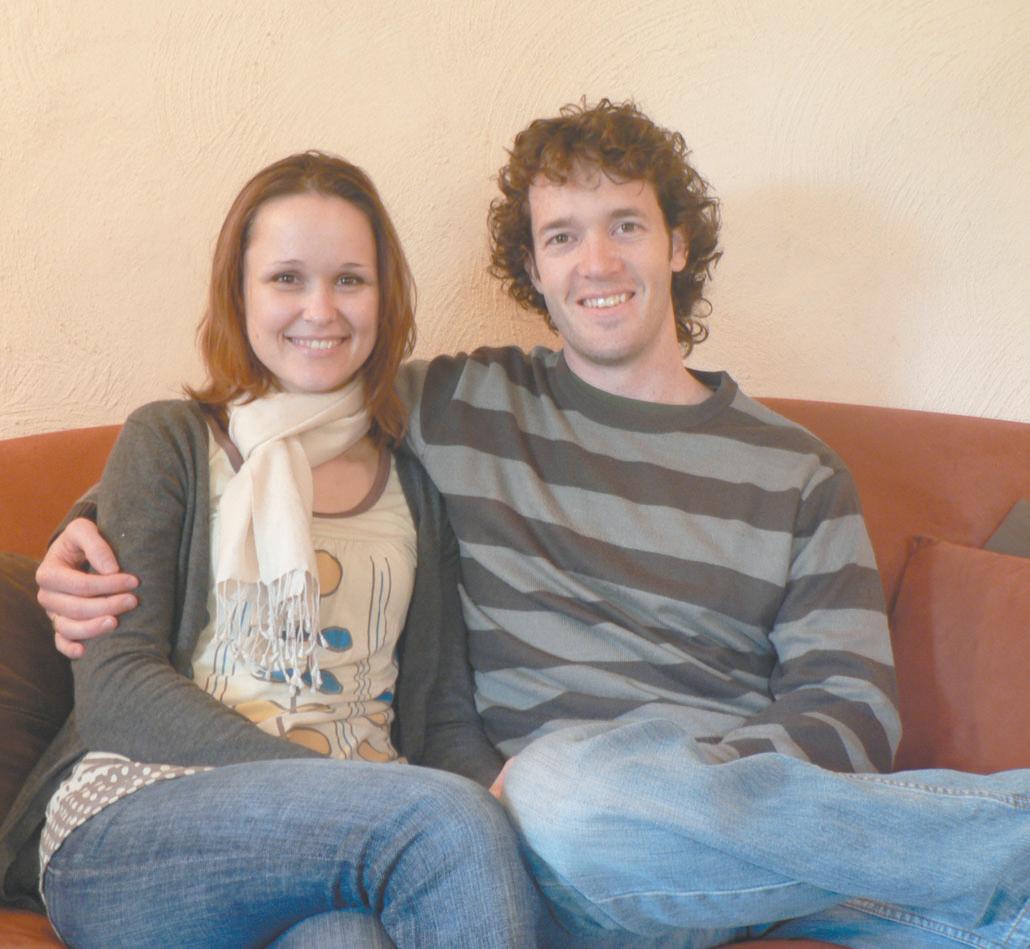
agency would be best for them, before settling on PALMS Australia, which they say assessed their skills and placed them in the community that most needed their unique attention.
The couple will both be working with Callan Health Services in PNG, a disability
service provider, which was established by the Christian Brothers in 1991.
“In many parts of the world, people with disabilities have little or no access to basic services which would enable them to improve their way of life. Ironically, the number of people with disabilities in countries such
as PNG is disproportionately high due to issues of nutrition, malaria, basic hygiene, HIV/AIDS, violence and lack of early intervention,” the PALMS website states. Sarah said that she is looking forward to training health workers in preventative care, while Damien works with those suffering from their disability.
“For the first few months, however, we are just wanting to observe the community and focus on building relationships within the area,” Sarah said.
With fundraising, undoubtedly a major aspect of their impending voluntary work, both Sarah and Damien said they were astounded at the support members of the Perth community have extended.
Over 200 people joined them for a fundraising event on July 28.
And while the couple tie up all loose ends, here in Perth, before the big move, they acknowledge that while they will be greatly needed by the locals in PNG, they too will learn so much from their voluntary experience.
“When you commit yourself to assist the needy of the world you have to be prepared to return to Australia and have your life, views and values change,” Damien said.
While not many newly married couples would think of leaving their freshly established lives to assist the poor, Sarah said there are also great advantages to volunteering time and skills with a spouse.
“We will have each other, and that will help us through anything that is thrown our way,” she said.
If
A new report launched in Melbourne last weekend (and available now through discovery) aims to open the eyes of young women to what Cosmo culture is all about.
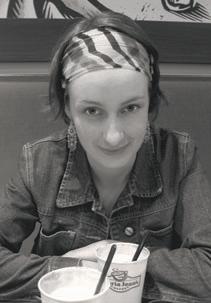 ■ By Selena Ewing
■ By Selena Ewing
Magazine images of women and girls have changed over recent decades, perhaps reflecting the changes in women’s status. It’s not all good news, though.
In the 1970s and 1980s, magazine advertisements stereotyped women by showing them smaller and taking up less space than men, being controlled by or dependent on men, and in less prestigious occupations. Now, women are more often shown as independent and professional.
But they are also shown wearing a lot less.
They now more often appear staring vacantly or seeming disoriented, being psychologically removed from their situation.
There are many more sexualised images of women - that is, images which focus on a woman’s sexual features or capacity, rather than any other aspect of herself such as her work personality.
“Christine Whelan has studied the advice given in US Cosmopolitan. She concluded that in 1965, 87.5 per cent of Cosmo’s relationship advice focused on marriage and how to make it work. By 2000, she says, the vast majority of relationship articles were about sex, short-term commitment and instant gratification.”
Sex sells
Because advertising money is crucial for the financial survival of most magazines, it is possible that the philosophies of commerce and advertising might also strongly influence magazine content.
Editors need to ensure that enough companies see their magazine pages as profitable advertising space. This is how Girlfriend magazine sells itself to advertisers:
The interactive and commercial approach by editorial also means that editorial can assist in delivering teenage specific solutions to all advertising needs. Editorial will, through specific subject matter and suggestion, inspire action from all those who come into contact with the brand. Girlfriend magazine also gives advertisers opportunities that will leave no stone unturned in their quest to be in touch with the latest teen trends and to provide both entertaining and reliable information to the magazine’s audience. Girlfriend girls are more than twice as likely to agree that they were “born to shop” and that they “wear clothes to get noticed” compared with the average woman.
Editors need to create “harmony” between advertisements and the actual content of the magazine. For example, the Vietnamese women’s magazine Gioi Phu Nu was recently given an overhaul - gone is its original focus on women’s cooperatives and social activism. Now content focuses on sex and lifestyle, and sex as empowerment. The editor said that
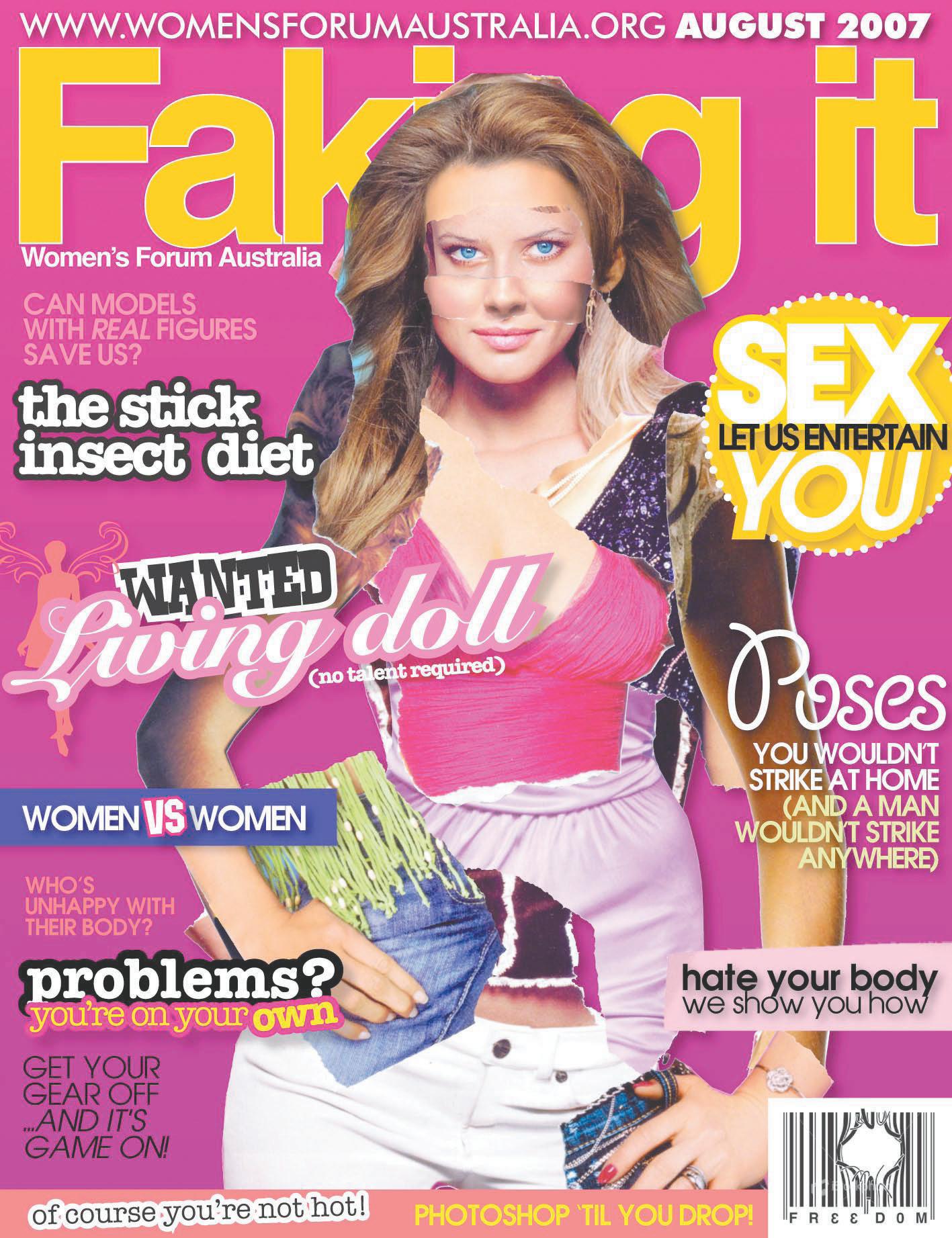
these themes made young people think the magazine was fun, which in turn attracted advertisers. She said that advertisers didn’t like the images of women working in fields. As a result, Vietnamese women’s reality was no longer portrayed.
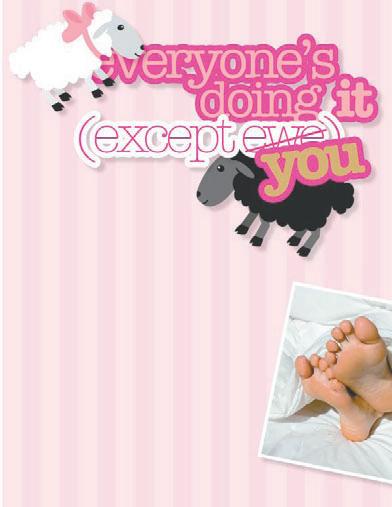
Christine Whelan has studied the advice given in US Cosmopolitan. She concluded that in 1965, 87.5 per cent of Cosmo’s relationship advice focused on marriage and how to make it work. By 2000, she says, the vast majority of relationship articles were about sex, short-term commitment and instant gratification. Whelan reports that US Cosmopolitan editor Kate White described the magazine as something “you get in bed with, or into the bathtub. Our reader sees the magazine as delicious, not necessarily good for her. The information is helpful, certainly, but it’s not like eating oatmeal. It’s more like a margarita.” If the world’s most popular magazine does indeed promote sex, short-term commitment and instant gratification, perhaps it reflects the way this approach to relationships has been normalised in popular culture. Has “relationship” become synonymous with “sex”? Do editors take their own magazines’ content seriously? Is the promotion of instant sexual gratification just harmless entertainment? And most importantly, how does it affect readers’ beliefs and behaviour?
It’s only normal
What we believe to be “normal” can influence our actions - even against our better judgment. Even in their relationships, people may act according to what they think is normal, rather than according to their own convictions.
A technical term for this is “pluralistic ignorance”. It happens when every person in a group thinks that his/her beliefs or attitudes are different from what is normal, because the others in the group act a particular way. They want to be seen as a desirable member of the group, so each will act that way in public, despite holding a different belief in private. Each person believes that he or she is the only one who has a conflict between private belief and public behaviour.
Researchers tested this theory in a group of college students, 136 female and 128 male. Their topic of interest was “hooking up”, or commitmentfree casual sexual encounters. They found that most people believed everyone was more comfortable with the amount of hooking up than they personally were.
Men believed women were more comfortable with hooking up than they actually were. Likewise, women believed men were more comfortable with hooking up than they actually were. While both men and women overestimated each other’s comfort levels with casual sex, overall men were more comfortable with it than women were.
The authors were concerned about this phenomenon. They thought that, in accordance with earlier research, it shows an “illusion of universality” that casual, noncommitted sex is normal. As a result, they wrote: “Some men may pressure women to engage in intimate sexual behaviours, and some women may engage in these behaviours or resist them only weakly because they believe they are unique in feeling discomfort about engaging in them. In this context it is possible for a woman to experience sexual assault but not interpret the behaviour as such, believing it to be normative behaviour with which her peers are
comfortable.”
This could help explain how reading magazines may encourage more women to have sex with more men than they would have otherwise. Magazines may not say straight out “go and find lots of men to have casual sex with”. But if Whelan’s research is accurate, shortterm flings are a dominant theme in women’s mags and this makes casual sex seem normal: “everybody’s doing it”. To normalise an activity gives it power. Sex becomes normal in even a casual acquaintance where people hardly know each other at all.
Don’t be a prude...
You’d have to be a prude not to want something “sexy” or not to want sex, according to pop culture. Young women now have to give reasons why they don’t want to have sex with guys they hardly know, or even their boyfriends. Some girls even pretend they have their period to get out of it because it’s not enough just to say “I’m not ready” or “I don’t want to”.
In her book, A Return to Modesty, Wendy Shalit writes:
To the extent she has no social support in her decision to say no, when a girl for whatever reason wants to say no to sex, today she is always making a personal comment on her date: that he is ugly or in some other way unappealing. This is very hard to do. We know from Carol Gilligan that…girls are pretty eager to please, and put great stock in their relationships with others.
The social support for modesty was a counterweight, balancing out this desire to please and enabling young women to test men’s character, in order to choose a suitable partner.
Without this support, a woman who doesn’t want to sleep with a man is insulting him.
So a teenager or a young woman who doesn’t want to have sex might be seen by others, by her boyfriend, or even by herself, as abnormal.
These women are almost invisible in the media - their decision is unlikely to be celebrated. Again quoting Shalit, “if in a different age a young woman had to be ashamed of sexual
experience, today she is ashamed of her sexual inexperience”. She believes we have lost the words to describe the real meaning of our sexuality, because sex has been made into a mechanical, empty and compulsory behaviour.
Famous feminist Germaine Greer was not lost for words to describe teenage girls’ magazines - she called them “sinister muck”, definitely not empowering for girls. In her book, Female Chauvinist Pigs, American writer Ariel Levy poured caustic criticism on the idea that the “raunch culture” that encourages girls to behave like porn stars is a sign of their liberation. On the contrary, she said, it showed women turning against themselves by making themselves and other women sexual objects.
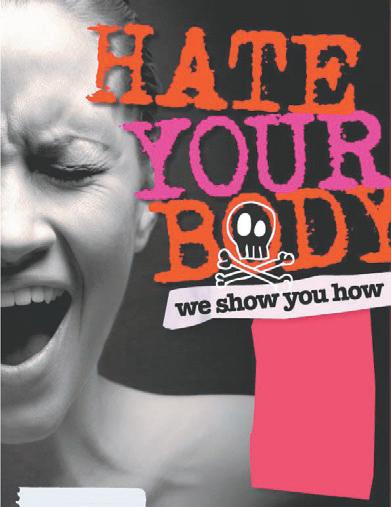
If these women writers, who can in no way be consigned to the “prude” category, are so angry with the exploitation of female sexuality found in today’s popular culture, it is time to take notice.
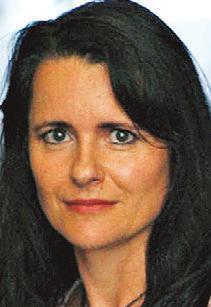 ■ By Melinda Tankard Reist
■ By Melinda Tankard Reist
An analysis of the three most popular magazines for young girls - Barbie Magazine, Total Girl and Disney Girl - showed that about 50 per cent of the content of the last two was sexualising material. For Barbie it was no less than 75 per cent.
This is really bad because these magazines are aimed at girls from five or six years old and up. Around a third of girls aged six to 12 read one or more of them. The pages are full of advice on fashion, beauty and products.
Lip gloss, perfumes, deoderants and hair styling products are promoted as must-haves for primary school girls. Along with this they can get “hot gossip”. Little girls are shown how to look and behave like pop stars, including how to do “sexy” dance moves.
One Barbie Magazine issue was touted as a “cute crush issue”, with images of teenage boys and men up to 30 years of age and comments such as “who’s your celeb dream date”. This can lead to girls being prepped for sexual advances from men. We know that this is happening to some girls who use social networking sites on the internet.
Popular culture, including magazines, prepare them to be approached by men sexually and the internet provides the opportunity.
An Australian, Jim Bell, who served time for child pornography offences, wrote an article justifying himself on precisely this ground. He said society allowed sexualised images of children in television, pop music and fashion, and the world of internet child porn merely completes the process. He had a point. The phrase ‘corporate paedophilia’ was invented by Phillip Adams, an Australian broadcaster and columnist.
It is very prescient - even though the corporations who use little children in their marketing hate it. The phrase highlights the way little girls are treated as sexual fodder for the flogging of products. It’s all about extending the market for products - corporations and advertisers are looking to younger and younger girls to both sell products and to be target markets for those products. As a result, the vulnerability and dignity of children gets sacrificed.
The shameless exploitation of little girls by commercial interests is poisoning a generation. Living in a sex-saturated society we are used to seeing the image of women cheapened. But baby dolls who know how to “flaunt” their sexuality? Provocative underwear for little girls, and “pole dancing” kits for them to entertain their families and friends with suggestive moves - and be paid in play dollars for it? If we care about children the time has come to put a stop to this ugly trend, says Melinda Tankard Reist, founding director of Women’s Forum Australia and editor of its new report on women’s magazines, Faking It.

They become objects, things to use. It’s crept up on us so that we have hardly noticed.
Young girls are not emotionally equipped to process these girlpoisoning cultural messages. It’s difficult for them when abandoned to their autonomy, to resist outside pressure. Exposing them to airbrushed, sexualised and thin images of other women makes them feel worse about themselves - it affects their wellbeing and selfesteem. Let me quote the American Psychological Association:
“In addition to leading to feelings of shame and anxiety, sexualising treatment and self-objectification
can generate feelings of disgust toward one’s physical self. Girls may feel they are ‘ugly’ and ‘gross’ or untouchable… Strong empirical evidence indicates that exposure to ideals of sexual attractiveness in the media is associated with greater body dissatisfaction among girls and young women.”
We are seeing the effects of this sexual objectification on the bodies of young women in self-destructive behaviour such as excessive dieting and eating disorders, drug taking and binge drinking, self harm, anxiety, depression, lower academic performance and ill health. As the APA also points out, this trend
they are more than the sum of their parts, to help them explore their gifts and abilities and develop other facets of their lives.
Like many of my friends, we do what we can to equip them to live above the sludge of a sick society, to live counter-culturally, and to make a positive mark on the world.
not only reflects sexist attitudes but probably increases the risks of sexual violence against women and girls. I would say, certainly. It is too simplistic just to blame parents for this state of affairs.
Parents are up against it and often feel powerless to hold back the tide of sexual imagery and negative messages which flood our communities. There needs to be a whole of society approach. I agree with the view that “it takes a village” to raise good children. Unfortunately the village has become toxic. We need governments, regulatory bodies and other agencies to ban sexualised representations of children and to do something to stop the pornification of every aspect of daily life. Why are violent and degrading lyrics allowed in music targeted at young people?
Why isn’t there compulsory internet filtering so children can be protected from internet predators? Why do our kids have to be exposed to open displays of porno magazines and billboards featuring half naked women in sexualised poses, while walking or being driven to school?
Yes parents can say no and not buy certain products but a lot more needs to happen than this to force those who have all the power, to change their ways.
Still, it is very hard. With regards to my own family and our children, you try to protect them, but it is just about impossible unless you lock them up. In our family I try to teach them media literacy - to recognise harmful messages, to teach them
■ Young pop stars dressed as sex objects
■ Dolls aimed at young girls with sexual clothing such as fishnet tights
■ Clothing, such as thongs, for seven to 10-year-olds
■ Adult models dressed as young girls
The Faking It report is aimed primarily at younger women, by exposing the messages they’re sold in magazines about being sexually available, looking “hot”, attracting men, and buying tons of products to try to improve their looks - and of course, never gaining an ounce of weight. Our magazine-style report is something of a parody of beauty and fashion magazines, with headings on the front like, “Of Course You’re Not Hot!” and “The Stick Insect Diet”. But it

Image:purseblog.com
contains serious research which we hope will help girls to reject the hyper-sexualised and objectifying messages they are inundated with and to search for something beyond the vacuous air-headedness of the cult of celebrity. I think any woman, actually, will find it helpful. Along with educators and anyone involved in advocacy for girls.
How can we counteract this trend? Women’s Forum Australia wants to be part of a new global movement of women and girl advocacy. It is happening already - we are being besieged with messages from all over the world from people who have also had enough of this toxic culture. Now we want to harness this sense of outrage and turn it into a force for change. We hope that the issue will be addressed at all levels, from government bodies regulating advertising standards to the magazine editors themselvesthe editors particularly because they have great power to put positive messages in their publications and make girls feel good about themselves.
Melinda Tankard Reist is an author and the founding director of Women’s Forum Australia. She lives in the Australian Federal capital, Canberra, with her husband David and four children.
Protecting your kids online is something you cannot think about too often.
■ By Phil FloresThe last couple of days I have been thinking a lot about this topic simply because it is this week's debating topic for my second daughter. I also came across a helpful article in a family magazine that I receive monthly called Perspective
This topic, I am sure, has been discussed, blogged and commented on countless times, and what I have to say is nothing new. All the same, there may be others who find my ‘9 Ways of Protecting Your Kids’ on the internet helpful. Here they are:
• Use internet content-filtering software.
• Place the computer in a common area of the home.
• Set a login password.
• Ask, "Why?"
• Suggest alternative sources of information.
• Offer other forms of entertainment.
• Talk about what is good or bad about the World Wide Web.
• Get to know the parents of your children's friends (very important).
• Set your own example. Let's take these one at a time.
Use internet contentfiltering software
A huge body of information is available regarding this idea. This is the most obvious means of establishing some form of protection. It is not 100 per cent
Every Australian family will be provided with an Internet filter after Prime Minister John Howard announced earlier this month he would spend $189 million to “clean up the Internet”.
The Federal Government said it would enter an unprecedented partnership with service providers to filter pornography at the source, by blocking porn sites and detecting predators using websites like MySpace and Facebook to contact children.
The government said that communications and Australian Federal Police resources would be boosted and checks to chatrooms expanded to detect child predators.
Privacy laws masking sex offenders would also be altered.
The government offered practical tools to put Internet porn beyond the reach of minors.
Of the $189 million, $43 million will go towards doubling the size of online child sex exploitation branch of the AFP and establishing a working group to find ways of getting around privacy laws that protect sexual predators.
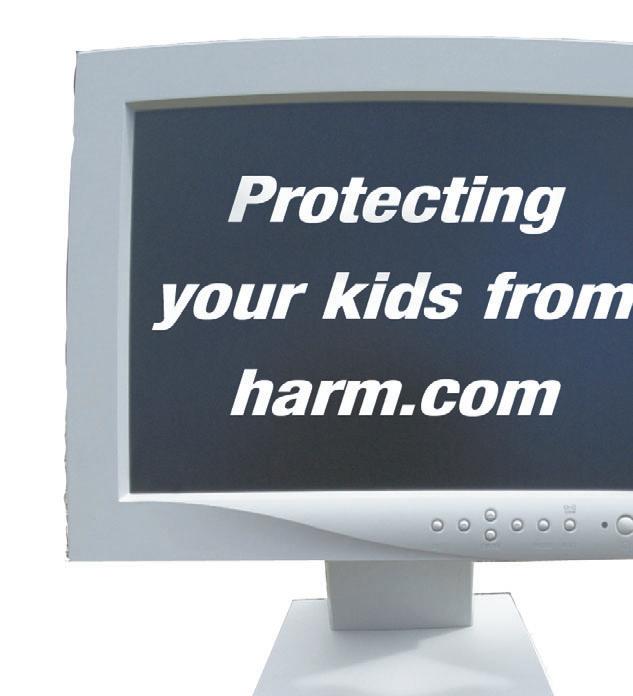

perfect but generally does what it is meant to do. Filtering software usually allows contents of sites that are listed in a "white list" to be displayed while those in a "black list" are disallowed.
Place the computer in a common area
This is a no-brainer. If the computer is in a place in the house where you can see or glance over what site your child is currently into it is less likely they will visit a site that they know you disapprove of. Placing the computer in an area of the house where there is a lot of traffic primarily serves as a deterrent for visiting sites that are offensive or embarrassing from your children's point of view.
Set a login password
If there is a lock on a door, it is a bit more difficult to enter it. It is the same with a computer connected to the internet. Set a login password to every computer that is connected to or will be connected to the internet. Let the children go through the exercise of asking you to login for them when they need to use the internet. This deters the children from simply going to it and starting to surf. This also requires a bit of effort on the part of the parent(s) since they have to stop whatever they are doing to do the logging on. Do not give the password to any of the children because that is just like having no password at all.
Ask, "Why?"
This is more or less related to the previous paragraph. Ask why they need access to the internet. Nowadays, it is common for children to refer to the internet when they are doing their homework and this is a fact of life.
Parents should find out if there is really a need to access the internet. Ask the children for a clear answer - don't let them just waffle through and answer in very generic terms.

This also trains the children to express an idea clearly.
Sometimes, the children's homework requirement may be resolved by another source of information. For example, there is Microsoft's Encarta and the Encyclopaedia Brittanica on DVD, which they can also use. Both of these programs may still require going to the Internet, but only when updated information is available or facts have changed since publication. There are times in my own home that one child simply needs a picture of scenery and an old copy of The National Geographic can help immensely.
Offer other forms of entertainment
Oftentimes, access to the internet is sought after because of the entertainment value that the internet presents. There are now hundreds of sites that offer video snippets, online games, music and so on. Make your
children realise that there are other forms of entertainment and that the internet is only one medium. Try to have video nights with the children or go and buy a board game that everyone will like. Let them experience that, in terms of entertainment, the internet is not the be all and end all.
Simply telling children that access to the internet is restricted because it is bad is not exactly the best idea. The children, depending on their age and level of maturity, have also to find out why. Using parental wisdom and discretion, explain to them why such a restriction is in place. Generally, they will accept your reasoning and will go along with it.
With the older children, sometimes it is even appropriate to mention actual cases of unsavoury events that occurred because of the Internet - cyber-stalking and loss of privacy, for example. On the other hand, they also have to see that the Web presents opportunities for learning and knowledge and it is to their advantage if they learn how to make use of it in this manner.
This point, together with the next, I consider a major item.
Why?
Because all your other efforts will go out the window if your children have unfettered access to the internet in their friends' homes.
If this is the case, the friend's house begins to appear more attractive and more inviting than it really is, simply because of the access to the internet. By getting to know the parents, you will get some idea on how they go about protecting their own children. It is also a good opportunity to share your approach and possibly educate them on the need for internet protection. Armed with
the foreknowledge of how easily the internet is accessed in the house of your child's friend you can provide the appropriate advice.
Set your own example
Finally, the main point. I consider this to be the major means of protecting children. Why? Because for them, their measuring stick on how to behave is how their parents do and say things. Children learn from looking and seeing.
If you tell them that the internet is only to be used for homework and communicating with others via email, but they see you spending an inordinate amount of time playing World of Warcraft, this presents a conflict in their minds. It also presents the fallacy that, "It's OK for daddy or mummy but not for me because they are now big, therefore when I am big enough I can do the same thing too."
Wrong.
If they see that you use the internet in exactly the same way you want them to use it - with a few exceptions, such as necessary work, which they can clearly see and understand - they will start using it in the same way.
Looking at these items you can see that only one third of them pertain directly to the computer; the remaining two thirds involve the people who use the computer, especially the parents.
Personally, I consider the last two items as the most crucial since for children what is most important is what comes through their eyes and not what goes through their ears. They are constantly comparing what is being said or asked of them to what their parents are doing.
As the saying goes, we as parents must be able to walk the talk.
Only by showing our children that we are also protecting ourselves from the perils of the internet will they themselves consciously police themselves as well.
Phil Flores is the father of three and works in IT in Sydney.
- Mercatornet

Two law students from The University of Notre Dame Australia, Fremantle defeated students from 25 other Australian universities to win the Australian Law Students Association (ALSA) Client Interview Competition.
The students, Adele Nardizzi and Nick Wilson, travelled to Canberra to take part in the 29th annual ALSA conference with Law students from across Australia for a week of seminars, talks and competitions.
Part of the weeks activities was the Client Interview Competition, designed to examine students’ skills in dealing with their clients.
Undefeated through each round Adele and Nick reached the grand final, held in the Australian Federal Court, in high spirits to triumph over The University of New South Wales.
Competition winner, Ms Nardizzi, said she is thrilled about the win and feels privileged to be a part of such an wonderful experience.
“I’m grateful to the Notre Dame Law Students Society, its sponsors, and the Notre Dame Law School for the opportunity to participate in such a widely renowned event.
“I think this win will greatly contribute to our future careers. Effectively interviewing a client is a skill that is essential to being a successful lawyer,” said Ms Nardizzi.
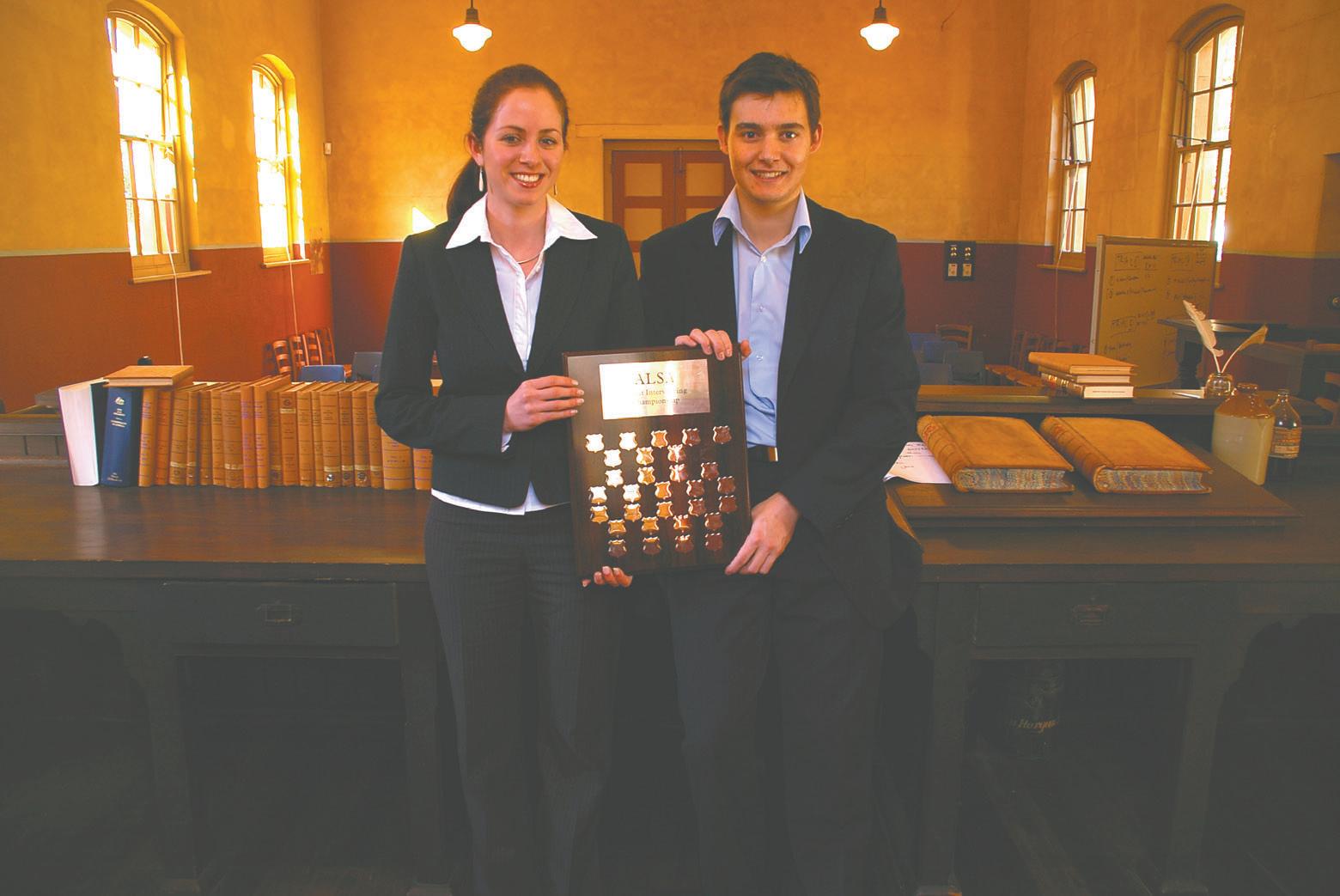
StudentridesacrosstheKimberleyonamountainbike
Studying at The University of Notre Dame Australia’s Broome Campus has been a huge adventure for second year nursing student Greg Strangman since he arrived from Canberra in 2005.
A Tug of War championship, a touch rugby grand final, NORFORCE expeditions into the Kimberley outback and conquering the Gibb River Road on a mountain bike have all contributed to his Broome experience.
Greg braved road trains, river crossings and the odd cattle muster to ride 160kms as part of a NORFORCE team of five who conquered the Gibb for Police Legacy.
As if the journey wasn’t daunting enough, Greg made the trip without any training after joining just three weeks out from the beginning of the event. He bought his bike the Thursday before the ride.
“I haven’t done anything like that before,” he says. “Parts of the road were pretty rough, but in others it was smooth so you could go faster as the dirt was hard. It was mainly just about taking in the country and talking to the other riders.”
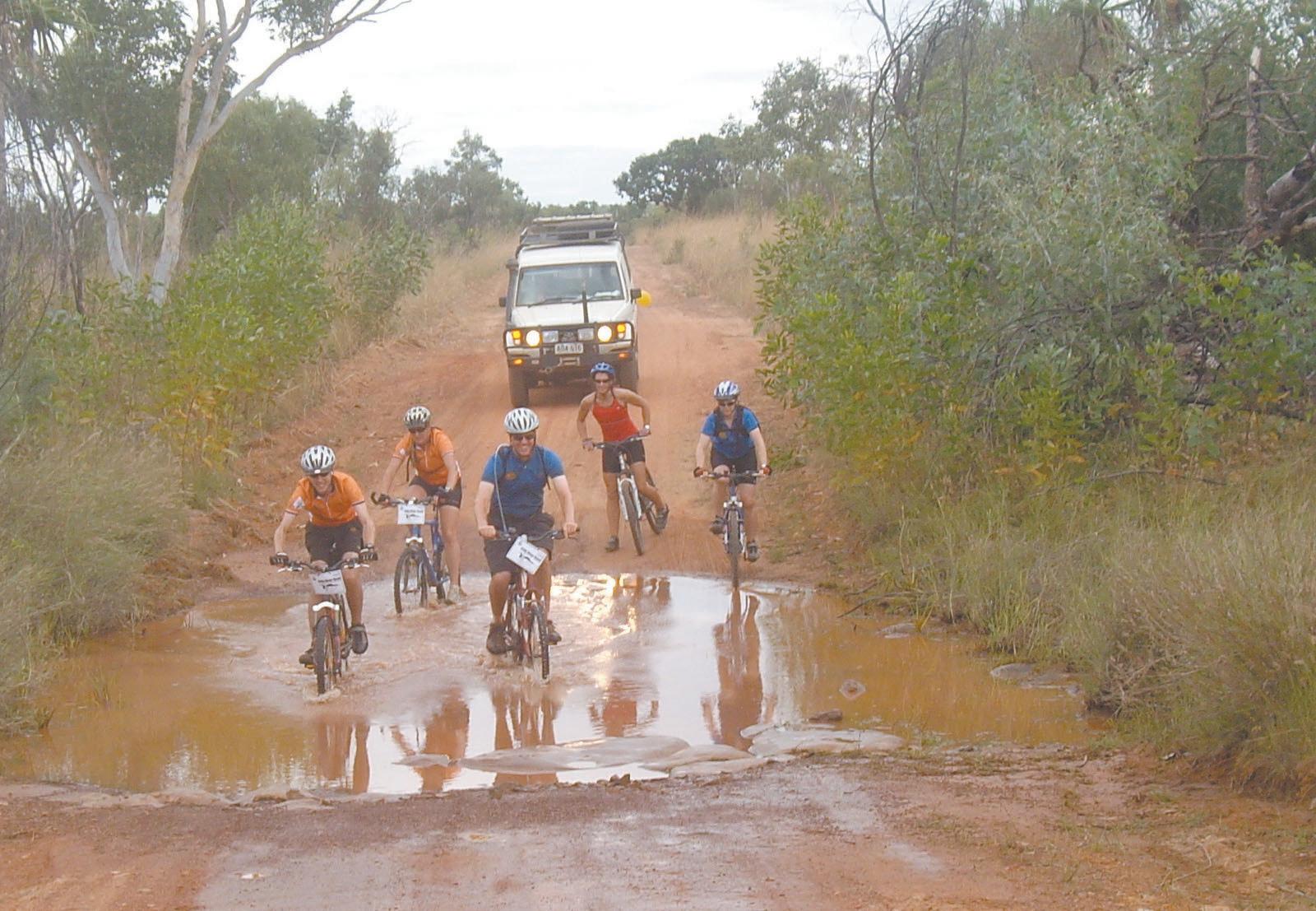
The highlight for Greg was rolling into Kununurra with cheering spectators lining the main street and knowing he’d achieved his goal.
“There are a lot of opportunities to get out of your comfort zone up here and it’s a pretty good feeling when you know you’ve met the challenge. I’ve seen my time in Broome as one really big adventure,” he says. Now Greg is looking forward to experiencing the Fremantle Campus.
great if more people came up and experienced Broome, even just for a semester.
“It’s a big step, but I’m sure I’ll be fine. It’s just another part of Notre Dame and it’s just another adventure. I think it would be
“They can get involved in so many events and you learn so much living on campus. This place is so unique compared to anywhere else in Australia.”
Mobile phone loss like ‘amputation’ for addicts
Mobile phone addiction could be the psychological disorder of the 21st century- at least in Australia. Research by the Queensland University of Technology has shown that the average Australian spends more than an hour a day on their mobile phone and that one in five users has an unhealthy obsession with it. Last week the university hosted the 2007 Mobile Media Conference where researcher Shari Walsh said addiction was not a matter of length of time spent on the phone, but of distress when one is unable to use it or the compulsion to use the phone when it could be dangerouswhile driving. In any case, the addiction was not to the phone itself but to “being connected to other people all the time”.
Psychologist Andrew Fuller said many of the young people he worked with would consider being without their mobile phone as tantamount to “an amputation”.
Phone addicts showed a sleep pattern common in clinically depressed people - a shorter time between falling asleep and the first dream.
- Family Edge -
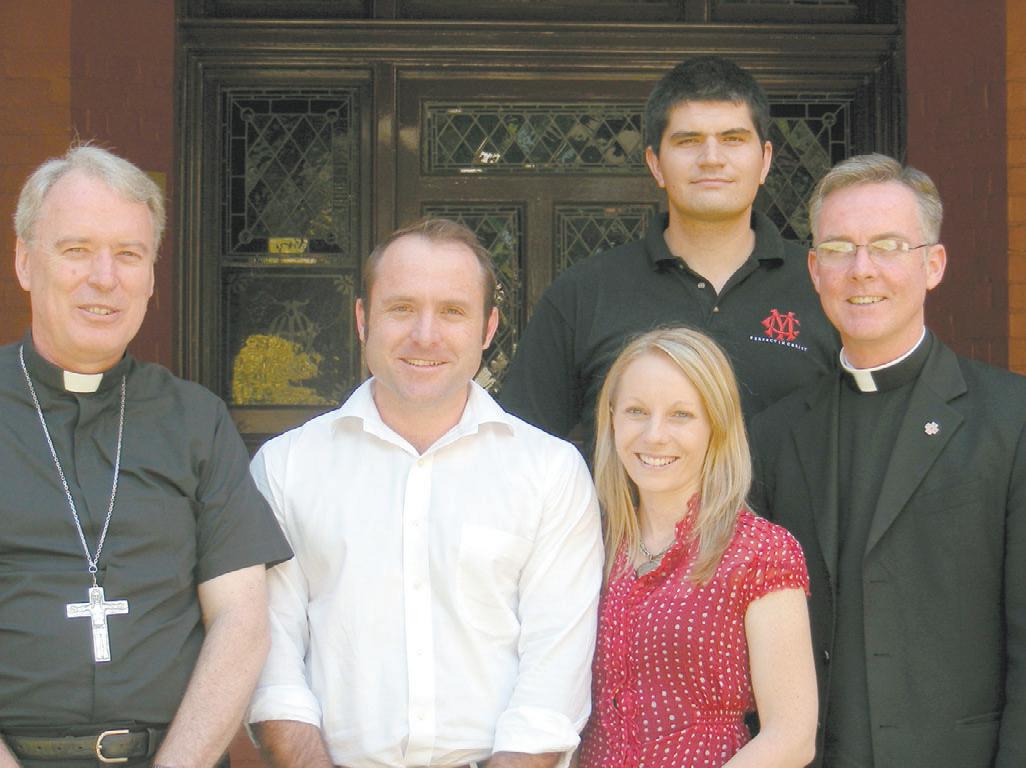
The National Directors of Australian company, Choicez Media, believe that the recent decision to place their sex education DVD and curriculum programs into every New Zealand Catholic secondary school reflects a growing desire to utilise modern media to support the Church’s approach to the human person.
Jonathan and Karen Doyle, current postgraduate students at Melbourne’s John Paul II Institute, are excited by the endorsement of the New Zealand Bishop’s Conference, who has agreed to use their programs in 49 schools. The New Zealand contract, which will see the implementation of programs including, “It’s Your Choice” (Values Based Sexual Decision Making for Secondary Students), “The Problem with Pornography” and “Things are Changing” (Puberty Education), follows the company’s enormous success in Australia where over 500 schools are now utilising their resources. Recent distribution of their programs in Singapore and Malaysia has also opened the door for more international exposure.
The Doyle’s motivation to provide training and information in the area of sexuality to young people, parents, teachers and clergy grew from their years of experience interacting with young people and was enhanced by their study of the Catholic sexual ethos based on the late Pope John Paul II’s Theology
This presentation will examine what you as a parent can do to be more involved and in control of the sex education your child receives as well as looking at some tips on how to communicate to your child about this sensitive topic.
of the Body. “At some point we took the new evangelisation seriously”, said Jonathan, “and realised that the Church had a positive and world-changing view of the human person and human sexuality, but was struggling to be heard by those most needing to hear that message.”
As a result they established Choicez Media and have since been able to empower thousands of young people with tools to enable them to make positive sexual decisions rather than, “ being steamrolled by sexualised media and marketing into choices that were powerfully shaping their lives”, Jonathan said. He believes that people are becoming increasingly aware of the influences of modern media and are searching for more relevant methods to communicate Catholic values to the younger generations, which is why many are embracing Choicez resources. “We are so pleased with the rapid uptake of the programs both in New Zealand and Australia”, Jonathan recently told discovery, “It has been such a privilege to work with Bishops, Catholic Education Offices, principals, teachers and parents and discover that there is such a strong commitment to helping young people navigate the crucial years that shape their childhood and adolescence.”
Contact Natalie at The Record Bookshop on 9227 7080, email thebookshop@therecord.com.au or drop in to 587 Newcastle St, West Perth to see for yourself.
The subject of sex education is one that many teachers shy away from. In this presentation we look at the incredible job teachers have in assisting parents in this area of education and offer tips and insights that will assist anyone working with young people.
Pornography has become so mainstream that as a society we have become desensitised to the severity of its impact on people’s lives and relationships. Levels of violent sexual crime have rocketed and from scientific research and practice we know that pornography has a great deal to do with it.
Puberty education package
Facilitators’ Edition:
Puberty is a special time of life for every young person. For years there has been a virtual drought of modern resources that would help parents, educators and churches explore this wonderful time of growth and potential. Separate Parent-daughter and parent-son DVD’s explore specific issues relevant to each gender as well as input from experts and a comprehensive exploration of the reproductive system and loads of hints and tips for the ups and downs of the puberty journey.
Parents’ Edition:

Boys Package – DVD (35 mins) and booklet outlining some of the challenges of sex education for boys as well as specifically dealing with changes that occur, including wet dreams and erections.
Girl’s Package – DVD (35mins) and booklet designed to assist parents in talking to their daughters about sex and dealing with sensitive issues, including breast development and menstruation.
Facilitators’ Edition:
This is a three-part DVD resource for young men between the ages of 16 and 22, dealing with the nature and impact of pornography and encourages them toward a vision of manhood that values and respects women.
Part One: Male sexuality and the addictive nature of pornography (17 minutes)
Part Two: The impact of pornography (13 minutes)
Part Three: A way forward (9 minutes).
Parents’ Edition:
This version has been designed with parents and sons in mind. This resource will educate you about the nature of pornography and offer a vision for manhood that is grounded in respect for the human body and the gift of sexuality.
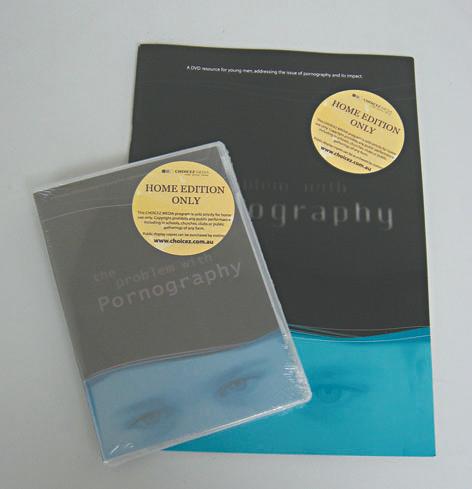
A comprehensive four-part DVD program for schools, parents and churches exploring media and cultural pressures to be sexually active, the dignity of the human person, consequences of high risk sexual behaviour and how to build great relationships.
This Values-Based Sex Education initiative is designed to empower young people in their sexual decision-making and encouraging them to save sex for marriage.
Parent Edition:
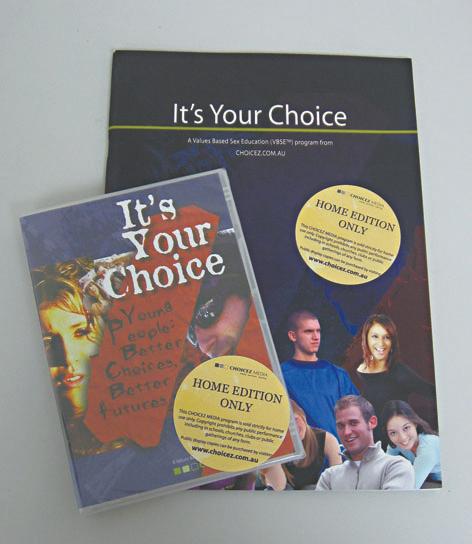
Inspired by popular demand the Parent edition provides focused discussion questions and ideas for parents to work through with their teenagers.

An book launch (to which you are invited) in early September will be the latest instalment in a remarkable ongoing project - the growth in awareness of the Theology of the Body. What’s that? Sounds weird, but it is to understanding who we are what Einstein's General Theory of Relativity is to Physics. Ray Campbell reviews Fr Percy's book, which will be launched at The Record on September 7. You should be there.
By Anthony Percy, Connor Court, Available from The Record for $18.95 + postage
JOHN L Allen, the highly-respected Vatican correspondent for the National Catholic Reporter in the United States, in a recent column commented: “No area challenges the Church today with greater urgency than the moral and doctrinal dilemmas surrounding sexuality, marriage, the family and human life ...” The context of Allen’s comments was his report on a conference in Rome titled, “Loving Human Love: The Heritage of John Paul II on Marriage and the Family”, sponsored by the John Paul
Fr Anthony Percy will launch the latest edition of Theology of the Body Made Simple at The Record at 7pm, Friday September 7. If you are a parent or a teacher, you probably should be thereyou’ll find it one of the most fascinating events you’ve been to in recent times. That’s why all parents and teachers are especially invited to come along and meet Fr Percy and hear him speak – it will be a relaxed but also deeply inspiring evening. Refreshments will be available, as will copies of the Theology of the Body Made Simple, which the author will be delighted to sign for purchasers. Special discounts apply for educaters.
For further information contact Natalie, the Record’s Bookshop manager, on (08) 9227 7080 or via bookshop@therecord.com.au

II Institute on Marriage and the Family.
At the conference, Cardinal Angelo Scola argued that Pope John Paul II had in effect laid a new conceptual foundation for the Church’s traditional teaching on marriage and sexuality. Much of this new “conceptual foundation” is to be found in the lengthy catechesis of John Paul II from September 1979 to November 1984 generally grouped together under the title “Theology of the Body”. Unfortunately this theology remains a closed book to most Catholics.
One volume which brings the catechesis together is an imposing 600 pages and contains many unfamiliar terms.
We need a “way in”, a doorway to this theology to help us to grasp its basic concepts.
This is what Fr Anthony Percy offers us in this concise and very clear introduction to John Paul II’s Theology of the Body.
Fr Percy does not attempt to analyse the whole of John Paul II’s catechesis. Rather he focuses on the very first section, referred to as “The Original Unity of Man and Woman”. In this section we learn of the four “original experiences” - Original Solitude, Original Unity, Original Nakedness and Original Sin.
We are all familiar with the last. John Paul II’s originality is displayed in his introduction of the other three original experiences before original sin.
The strength of Percy’s book is that he gives us a clear understanding of what is
meant by these three “experiences”, what it means to go back to “the beginning” and the significance for us. Reflection upon these original experiences reveals to us qualities of the human body deepening our understanding of the human person.
In Chapter 2, Fr Percy unpacks the meaning of these four qualities - symbolic, nuptial, free and fallen and redeemed.
In Chapter 3 he goes on to expound the implications of these realities for our understanding of various forms of sexual activity.
Fr Percy’s explanation highlights that the Church’s teaching on all kinds of sexual activity is grounded in an understanding of the human person and sexuality viewed “from God’s perspective”.
At the heart of this vision is the understanding that we are made for relationships of self-giving love, imaging our Triune God.
The book concludes with a short chapter on forgiveness and trust.
This book will not answer all your questions about the “Theology of the Body”, but it is a great doorway to help people understand the fundamentals and to entice them to explore further.
It is not just a commentary. It is an excellent catechesis in its own right.
I highly recommend it for anyone wishing to begin to understand this “new conceptual foundation” for the Church’s teaching.
You’re joking?!



Shortly after Pope John Paul II was elected as Pope in 1979 he began a series of regular talks every Wednesday known as general audiences – usually to the many pilgrims visiting Rome.
What caused more than a few eyebrows to be raised however was the explosive subject of his talks – sex, gender, marriage, fertility and how these relate to God and heaven.
The body, he said, has a language all of its own – physical love.
Few people knew the Pope had been deeply interested in these subjects for many years as a philosopher and as a parish priest before being elected.
John Paul II eventually gave 129 of these talks which have come to be known as the Theology of the Body, a phrase which really means ‘the study of God in the human body.’ When people discover their content they are usually amazed and often incredulous.
Well-known promoter of the Theology of the Body Christopher West says their reaction is usually “You’re joking! Is this what the Church really teaches? Why didn’t someone tell me this before?”
The TOB, for short, is now being regarded by many observers as a quantum leap forward in our understanding of this issue – not a revolutionary break with the past but an organic development. Papal biographer George Weigel describes the TOB as “a ticking timebomb, set to go off some time in the future with unforseen consequences.”
Cardinal Angelo Scola thinks the TOB may come to be the prism through which all other theologies come to be viewed. Fr Percy’s visit to Perth should be interesting.



Forget the self-help books. Jesus has the answers.
The Beatitudes are the essence of the famous Sermon on the Mount and are described in the Catechism of the Catholic Church as “the countenance of Jesus”.
Although the Beatitudes and the sermon are famous, they are not widely understood, so Archbishop Barry Hickey has launched a series of weekly talks on his website to explain the Beatitudes and how they relate to human nature and daily life.
The Archbishop’s website is www. perthcatholic.org. au, and the link is “Archbishop’s Weekly Message”.
His introduction and his talks on the first four Beatitudes are presented here.
Twhere? poor in Spirit they that mourn the Meek thirst for right
here are thousands of books that promise to give you what they call the secret of success and happiness. Some even have some good ideas, but none of them contains the full story, which is Jesus Christ Himself … but Jesus also gave us some guidelines so we can understand ourselves. These guidelines are known as the Beatitudes - the attitudes we need in order to be able to look in the right direction for our happiness.
We find them in the fifth chapter of St Matthew’s Gospel. Over the next few talks, I want to explain how the Beatitudes solve the riddle of life that is you. Human beings are rational creatures, and we have free will
Our first Beatitude is “How happy are the poor in spirit, for theirs is the kingdom of heaven.” From Chapter 5 of St Matthew’s Gospel. Poverty of spirit is the gift of putting our trust in God instead of in things. It is a preference for being instead of having. It is related to our instinct for survival and security which is naturally very powerful, but which tends to focus our desires and actions on things as the source of happiness and security.
A consumerist society like ours increases the problem as it expands the range of things
The second beatitude is “Blessed are they that mourn for they will be comforted.”
Comforted means strengthened. This beatitude tells us that suffering is the way to strength. It is the counter to our inordinate desire for pleasure.
As infants grow they have a natural desire for sensation in the form of pleasure and stimulation. If this need is adequately met, the desire for pleasure of the senses can be integrated into a balanced personality.
But if there is a neglect of affection, or if there is excessive fear, or erratic and unreliable parenting there may be distortions in the desire for affection, esteem, popularity and
The third is: “Blessed are the meek for they shall inherit the earth.” Meek does not mean weak, nor is meekness fear.
Meekness is the strength of character that enables us to accept other people as they are.
It is how Jesus described himself: “I am meek and humble of heart.” It is also the way he lived – teaching, guiding, healing, but never controlling people.
From about the age of two, children begin to become aware of their own personal power to ‘do’ things in the world outside themselves. Most of their efforts to develop their personal power will be impulsive, not influenced by rational thought because they are not yet rational.
These are times requiring patience, encouragement, wisdom and love from parents.
The fourth Beatitude is: “Blessed are those who hunger and thirst after what is right, for they shall be satisfied.”
We are social creatures and live our lives in relationships with others. Being a member of a group is therefore an essential part of being human. But a group can be something of a prison which limits our willingness to extend justice to others. The challenge of this beatitude is to put what is right above the pressures of group membership.
Children who are warmly accepted, loved and encouraged in their own group are likely to be able to develop healthy relationships and good social dynamics as they mature. Children who suffer abuse, neglect or rejec-
that enables us to make moral and spiritual choices. Our problems are, first, that we often think emotionally and impulsively instead of rationally, and, second, we often act emotionally and impulsively even when we think rationally.
Peter, James, John and Paul all described this division within us a conflict between the true self – the image and likeness of God –and the false self - the collection of strengths and weaknesses we are born with or acquire as a result of our experience and treatment in the years before we reach the age of reason.
The task of this life is not to feel guilty about our weaknesses but to learn to disen-
we are attracted to and think we need. We do, of course, need things. That is why the Church works so hard to help the poor. But we don’t need to be addicted to things. The accumulation of things does not bring peace, but brings instead a nagging fear of scarcity in all aspects of life. To place our faith, hope and love in things instead of in God is the ultimate distortion of the human call to eternal life with God. It is also the denial of the First Commandment: “I am the Lord your God, you shall not put other gods before me.” If we empty ourselves of the attachment to things,
sexual relations as the child grows to adulthood.
The extreme examples of a distorted needs for approval, fame, celebrity, and sexual gratification are repeatedly found in the entertainment world. Unfortunately, these weaknesses are justified and glorified throughout the media, and especially in magazines and fashions aimed at the young. They justify and glorify pleasure so they can sell it to us.
Self-denial and suffering are necessary to strengthen us for growth as human beings.
Our tendency to arrange our lives too comfortably and not to let anyone interfere is a sure indication of our focus on pleasure. We
This early development of personal power is crucial to the development of a fully functioning adult because it is the energy that enables people to accept responsibility for their working life, their contribution to society, the proper use of the creative power of their sexuality, and the care and protection of the family they establish.
Spontaneous self-expression suppressed in a child will usually result in fear of self-expression in others, with a consequent impulse to control them.
In children this is called bullying; in adults control. It is closely associated with problems of alcohol, drugs, gambling, child abuse and domestic violence.
Control is not discipline. Discipline guides the child towards awareness and control of
tion in their own group tend to find it hard to be socially secure and are vulnerable to the ‘attractions’ of extremist groups.
If children learn from their group that “others” are not to be trusted, or are not as good as them, there will be problems. If they learn by example that strangers are to be welcomed and respected, there are not likely to be problems.
The pressure exerted by group membership is commonly called peer pressure, but it applies as much to adults as to teenagers.
It is the origin of racism, nationalism, political bias, religious bigotry, militarism, mob morals, gang loyalty, one-eyed football supporters and suicide bombers. This fourth
tangle ourselves from the weaknesses that prevent us choosing what is good, our true happiness, or “beatitude”. As St Paul said (Eph.4:22-23) “you must lay aside your former way of life and the old self which deteriorates through illusion and desire, and acquire a fresh spiritual way of thinking”. This is the process Jesus described as “Take up your cross and follow me.” In other words, take up whatever condition you find yourself in, and choose to follow his direction.
The beatitudes are the guidance Jesus gave us to enable us to carry out this task. They are a radically different way of understanding who we are as human beings.
like little ‘gods’, we create space for the gifts of God to come into our life – whether they be our daily bread or the gifts of the Holy Spirit. This is a radically different way of being human, and enables us to see the world in a different light. Indeed, it enables us to live in a different world – the kingdom of God, which is promised to the poor in spirit.
One sure sign of the development of this beatitude is that we are no longer driven by the fear of scarcity … and another is that we become more generous in our love and service to others.
need to stretch ourselves so that through difficulties undertaken on behalf of others we can be strengthened. Acts of self-denial, generosity and kindness to others are the traditional means.
The positive acceptance of pain and suffering are great sources of strength; the Catholic tradition of “offering it up for the holy souls” deserves a revival.
The demand to make Mass and other forms of worship “fun” or entertainment is another symptom of the modern addiction to pleasure. To think that God does not warrant worship unless we get “fun” out of it is irrational in the extreme.
impulses, leading to the ability to exercise true self control. Control is the attempt to suppress a child’s impulses, with the result that he never learns to understand and master them.
Jesus went to a lot of trouble to show us the importance of meekness.
Before he began his public ministry, he was tempted to take control of all the kingdoms of the world, but refused.
When his Apostles tried to control the crowds who wanted to approach, he welcomed everyone, especially the children.
Finally, he suffered much and was raised up on the Cross and in the Resurrection, not so that he could impose his will, but so that all people would be drawn to him.
This is God’s gift of freedom to us, and meekness is our respect for it in others.
Beatitude must be cultivated if we are to be able to recognise Jesus in all people, regardless of class, creed, colour, race or behaviour, and therefore to treat them all justly.
These first four beatitudes must be developed by adults for their own personal growth, and so that they will be the natural environment for the children who grow with them.
As rational beings we must learn to be aware of the attitudes that motivate us, and we must use our reason and will to choose the path of the beatitudes. We can rely on all the supports of Christian life to help us – prayer, the sacraments, the grace of God, and faith in the power of the Risen Jesus who will do what is necessary to save us.

For graduate employment
For graduate satisfaction
For teaching quality
For development of generic skills
For positive graduate outcomes
Source: Good Universities Guide 2008
Tuesday 4 September, 6.15pm start
Come and find out more about the university that treats you as a person and not a number. The information session will be presented by the University Admissions staff and will provide detailed information about the Admissions process including the Notre Dame personal statement and what to expect in the admissions interview. The session will also include the course structure for Notre Dame’s alternative entry pathway, the Tertiary Enabling Program.
Semester One 2008 Undergraduate applications are due Friday 28 September 2007.
Completed applications can be delivered by mail, courier or in person to:
The Admissions Office
19 Mouat Street PO Box 1225
Fremantle, Western Australia 6959
Opening hours: 8:30am-5:00pm Monday-Friday Phone: 9433 0537
The Fremantle Campus offers two specialized Teacher Assistant courses –the Teacher Assistant Certificate (Special Needs) and the Teacher Assistant Certificate (Early Childhood), both of which can also provide a pathway into the Bachelor of Education degrees at the University.
“The course has given me valuable knowledge on children’s development and education. On completion of my practicum and graduation from the course, I now have the confidence and determination to apply for the Bachelor of Education at Notre Dame.”
SUE FASHHO
Teacher Assistant course (Early Childhood Education) 2006 Graduate
Tertiary Enabling Program
At the end of 2006 I decided to enrol in the Tertiary Enabling Program.
This six month course is held on Campus and is a fantastic opportunity to get a feel for university life. The classes are excellent because they are kept to a small size of about twenty students. This means teachers are able to give students all the attention they needed and are willing to spend their free time helping us.
I found the whole program incredibly beneficial because I was able to learn skills such as university essay writing, referencing, using online databases and journals, all of which I think would have been very hard for me to figure out on my own. I was also able to relearn mathematical skills that I had forgotten from high school, as well as increase my knowledge in using Word, PowerPoint and Excel.
I am now enjoying my first semester of a double degree in Bachelor of Marketing & Public Relations/ Bachelor of Arts (Politics & Journalism) at Notre Dame.
“…a fantastic opportunity to get a feel for university life“
